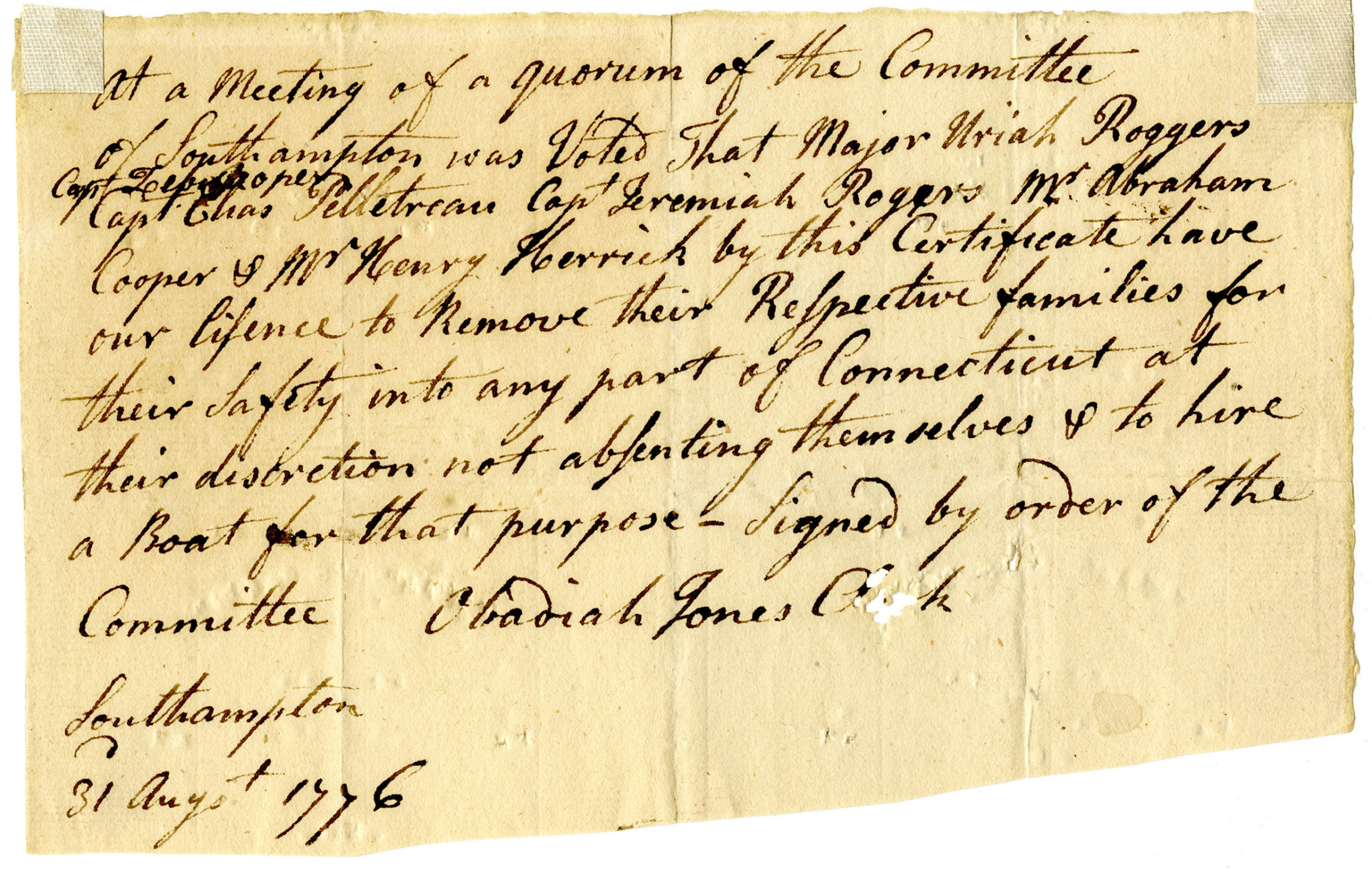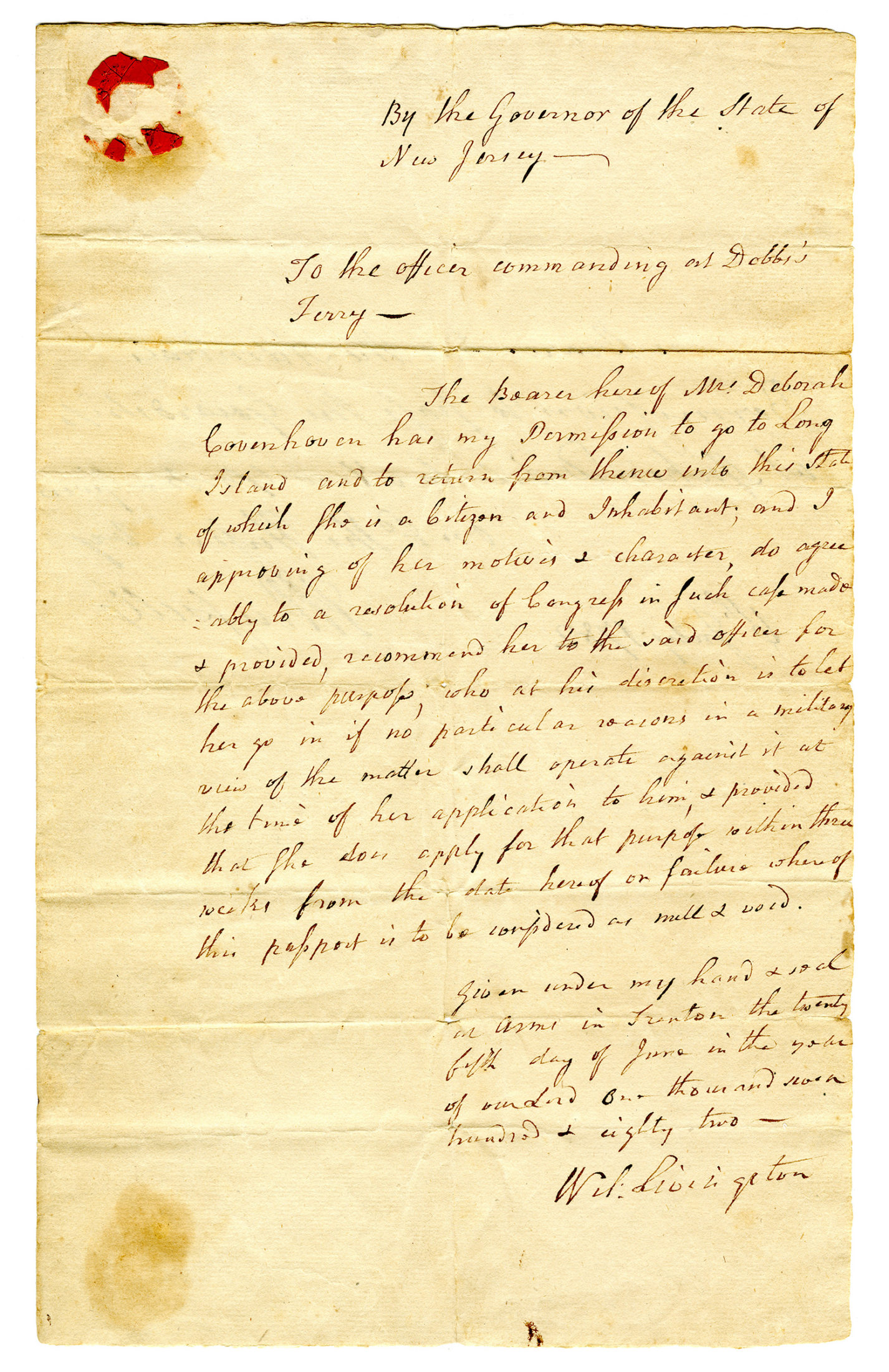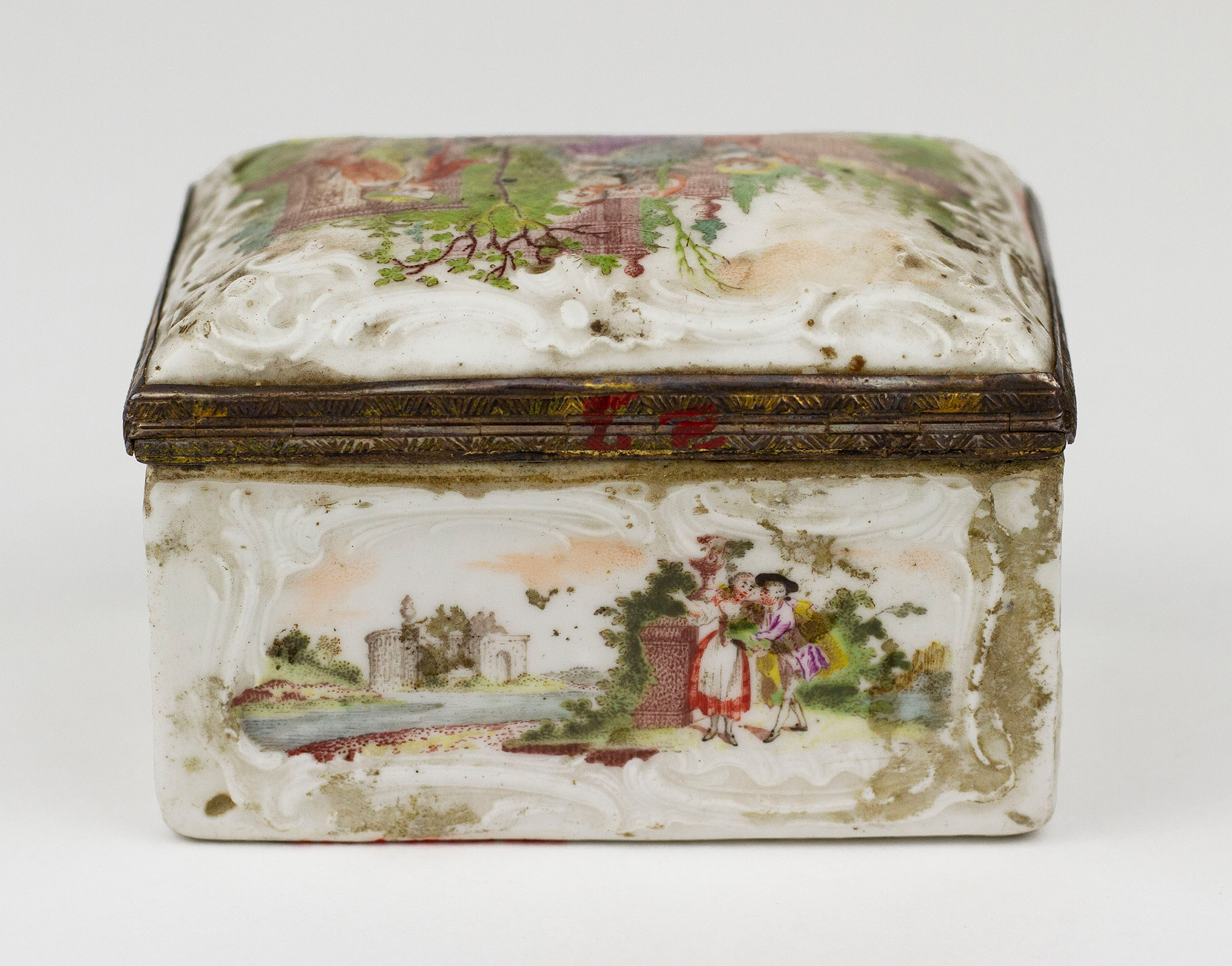A Traitor in Our Midst?
Nicholas Couwenhoven and British-Occupied Brooklyn
The original Brooklyn owner of this portrait miniature was Nicholas Couwenhoven. Neither a devoted patriot nor traitorous loyalist, Couwenhoven was a pragmatist who played both sides to protect his own interests. This was in fact common in the Revolutionary Era as many people living in New York or Long Island considered themselves neutral in the fight.
As was the case with many prominent Kings County landowners, any loyalty Couwenhoven felt to the Revolutionary cause early on cooled following the British victory at the Battle of Long Island and the subsequent occupation of Manhattan and Long Island. In contrast to the droves of Long Islanders who fled to Connecticut following the battle, Couwenhoven elected to stay at his home in New Utrecht and cooperate with British authorities.

Committee of Southampton License to Remove to Connecticut, 1776
Pelletreau family papers (ARC .142)
Brooklyn Historical Society
Couwenhoven’s wartime network was not limited to the British cause and its supporters. Occupied New York was not a fortress. Instead, it was a melting pot where patriots, loyalists, pragmatists, soldiers, civilians, enslaved people, and prisoners coexisted, at times uneasily. Individuals like Deborah Covenhoven (no known relation to Nicholas Couwenhoven) were routinely granted permission to travel throughout the city to conduct business or to visit with or assist relatives. Travelers needed official orders of permission to go on their way.

Order of Permission to Travel to Long Island, 1782
Deborah Covenhoven Orders of Permission (1977.640)
Brooklyn Historical Society
Couwenhoven frequently encountered potential enemies on Long Island during the war, all of whom he attempted to appease to protect his own interests. The Couwenhoven family heirlooms in the BHS collection provide evidence of this balancing act. Family history claims that Couwenhoven received this portrait miniature from a grateful American soldier, while a European-made snuffbox, also at BHS, attests to Couwenhoven’s good standing with the British. A British soldier who stayed with the Couwenhovens during the war supposedly gifted them with the snuffbox as a token of gratitude for their hospitality.

Snuffbox
English or Continental, late 18th century
M1991.606.1
Brooklyn Historical Society
Following the American victory, Couwenhoven’s cooperation with the British during the war forced him to act quickly and strategically to defend himself from legal prosecution as a traitor. His portrait miniature played a key role in his defense, becoming proof of his “loyalty” to America.